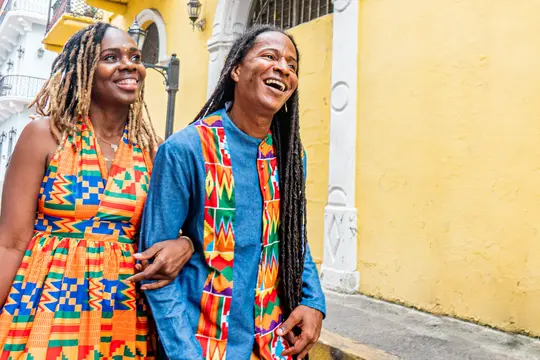
9 new trips to take in 2026 for maximum happiness
From blissed-out beach trips to exploring new cities and authentically getting under the skin of a destination, plan your travels around what makes you happy
A small, landlocked country between Romania and Ukraine — what Moldova lacks in size, it more than makes up for in stature. Boasting a diverse landscape that includes rolling hills, forests, lakes, and vineyards, it’s the perfect place to visit if you’re looking to combine culture with natural beauty. The capital Chișinău is packed full of sites — including the dome-topped Nativity of Christ Metropolitan Cathedral — and there’s also one of the world’s largest wine cellars close by.
Visa requirements may change, so for the most up to date information we recommend using our Entry Requirements tool. Alternatively, check the Moldovan embassy website in your country of departure.
Recommended vaccinations for Moldova include hepatitis A, hepatitis B, typhoid, diphtheria, tetanus, polio, and measles, mumps, and rubella (MMR). However, as advice often changes, you can check out our Entry Requirements tool for the most up-to-date details on vaccination requirements.
Like much of Europe, Moldova has a continental climate with distinct seasons, with hot summers and cold winters. Summers (June to August) are hot and dry, with temperatures floating around 25 to 30°C (77 to 86°F) — thunderstorms often occur during this time period. Winters (December to February) can be cold, with temperatures often dipping below freezing, ranging from -2°C (28°F) in December to -5°C (23°F) in January.
Spring (March to May) and Autumn (September to November) tend to be mild with rainfall common in April and May and October and November. It can occasionally get cold at this time of year too, so make sure you bring layers just in case.
The best time to visit Moldova depends on what kind of experience you're looking for, but generally, late spring (May and June) and early autumn (September and October) are considered the most ideal times to visit. Temperatures are pleasant and mild, ranging from around 15 to 25°C (59 to 77°F). The weather is perfectly suited for outdoor activities like wine tours, hiking, and cycling, and you won’t have the crowds that you’ll find in July and August.
While conventions can vary from country to country, tipping is customary in Europe. A general rule is 10% of the bill for wait staff, and a smaller amount (€1 or €2) for other service providers.
Tipping is an expected — though not compulsory — component of your tour programme, and an expression of satisfaction with the persons who have assisted you on your tour. There are several times during the trip where there is opportunity to tip the local guides. You may do this individually, or your CEO will offer to collect the money and tip as a group. Recommendations for tipping local guides would range from €3 to €5 per person, per day, depending on the quality and length of the service; ask your CEO for specific recommendations based on the circumstances.
At the end of each trip, if you felt your G Adventures CEO did an outstanding job, tipping is very much appreciated. The precise amount is a personal preference, however €30 to €40 per person, per week can be used as a guideline.
Internet access in Moldova is generally pretty good, especially in urban areas like Chișinău, the capital, and other major cities and towns too. Many cafés, restaurants, and public spaces in the cities offer free Wi-Fi. The quality can vary, but it’s usually reliable in tourist-friendly areas. However, please be aware that in rural or remote areas, it might be much slower or even non-existent.
Yes, there are ATMs in Moldova, and they’re widely available in major cities like Chișinău, and Tiraspol in banks, shopping centres, and malls.
Pretty much all ATMs here accept international credit and debit cards (such as Visa and MasterCard), though it's a good idea to check with your bank beforehand just in case. Please note that you may be charged a transaction fee for withdrawals too.
Moldova is considered to be relatively conservative regarding LGBTQ+ rights, but there have been some improvements in recent years. Same-sex relations were decriminalised in 1995, and there are pockets of the capital which are accepting. However, it’s worth being discreet here — especially when you’re in rural areas.
As part of their commitment, all CEOs receive LGBTQ+ inclusion training so every traveller feels respected and welcomed on all of our tours. We commit to making our tours a safe and inclusive place for people to express their authentic selves without judgement, free from any discriminatory language or harassment.
While travelling with G Adventures, all travellers must treat each other with dignity and respect to create an environment that is positive, safe, and where everyone feels welcome. You can find out more via our LGBTQ+ travel page.
The official language of Moldova is Romanian. Russian is also widely spoken, especially in Transnistria, along with Ukrainian and Gagauz. English is commonly spoken among younger generations and in tourist-related businesses.
Tap water in Moldova is generally safe in cities but may not always be recommended for drinking, especially in rural areas. It’s a good idea to drink bottled water or use a filter when in doubt.
Yes — in general, Moldova is safe to visit. However, like everywhere else in the world, petty crime does exist. Keep an eye on your valuables and you should run into no problems here.
G Adventures takes all reasonable measures to ensure your safety and enjoyment while travelling with us. All of the included activities are properly vetted and regularly checked by us, and we take great care in choosing the right transportation, stays throughout your trip, and guides leading your tour. However, there are always inherent risks when travelling — you can find out more via our Travel Safety page.